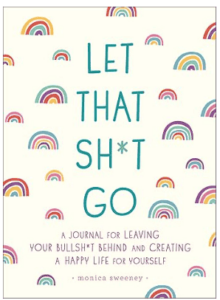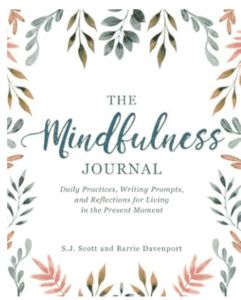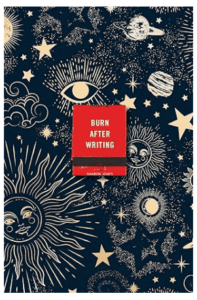Taking care of your mental health daily is essential for your well-being. Let these daily journaling prompts for mental health create a new stress-free day.
Are you searching for a tool, that can help you take care of your mental health regularly?
Then you are in the right place. Journaling is a powerful instrument, that has gained recognition for its therapeutic-like benefits in recent years.
As a master’s graduate in biopsychology, I understand the intricate interplay between biological, psychological, and environmental factors that shape our mental well-being. So, I can confidently say, that these 31 daily prompts will deeply assist you on your healing journey.
In this blog post, we will delve into the depths of deep journaling prompts, exploring their biopsychological background and uncovering their potential to foster emotional healing and self-discovery.
This blog post is all about daily journaling prompts for mental health.
Table of Contents
Toggle1. What are Deep Journaling Prompts for Mental Health
Deep journaling prompts are questions or statements, that make you think about your subconscious behaviour, that is influenced by your emotions. The emotions you feel in a given moment are a translation of how you feel about the present situation. The roots of this translation stem from your upbringing, beliefs or experiences.
For example, you have a presentation and you feel really stressed about it. Your behaviour would be insomnia, inability to eat, racing thoughts, picking at your nails… This all stems from your fear of public speaking because you think that people will laugh at you and talk behind your back if you say something stupid.
Journaling prompts can help you figure out your underlying belief (people will laugh at me and talk meanly behind my back) and transform it, so for your next presentation you can be confident in your hard work.
If you regularly write about your underlying beliefs, through time, they will transform and make you a healthier, more balanced person, adding you to your mental health recovery road.
2. Benefits of Journaling for Mental Health
The benefits of deep journaling for mental health are rooted in both psychological and biological mechanisms.
From a psychological standpoint, prompts provide a structured framework for self-reflection, allowing you to explore your thoughts and feelings in a safe and supportive environment. This process can facilitate emotional processing and cognitive restructuring (changing your limiting beliefs), leading to increased self-awareness and emotional resilience.
Biologically, the act of journaling can have effects on brain function. Research has shown that expressive writing can modulate activity in the amygdala, a key brain region involved in emotional processing, leading to reduced stress and improved emotional regulation. Additionally, journaling has been linked to increased activity in the prefrontal cortex, which is responsible for higher-order cognitive functions such as decision-making and self-control.
3. Incorporating Journaling Into Daily Routine
Now that we understand the power of deep journaling prompts, let’s discuss how to incorporate them into our daily routine.
Here are some tips for integrating journaling into your daily routine:
- Set Aside Dedicated Time: Schedule regular sessions for journaling, ideally at the same time each day, to establish a consistent habit.
- Choose Prompts Wisely: Select prompts that resonate with you personally and align with your current emotional needs and goals.
- Create a Safe Space: Find a quiet, comfortable environment free from distractions where you can focus on your journaling practice without interruption. Make tea, turn on music, get pillows or a blanket- make yourself comfortable.
- Embrace Vulnerability: Allow yourself to be open and honest in your journaling, even if it means confronting difficult emotions or challenging beliefs. Keep your journal for your eyes only, so you can create a judgement-free space.
- Practice Self-Compassion: Be gentle with yourself throughout the journaling process, acknowledging that healing and self-discovery take time and patience.
4. What to Write in a Daily Mental Health Journal
While there are no hard and fast rules about what to include in a daily mental health journal, here are some suggestions to guide you.
- Emotional Check-In: Start by reflecting on your current emotional state, noting any significant feelings or mood changes since your last journal entry.
- Gratitude Practice: Cultivate a sense of gratitude by listing three things you are thankful for each day, no matter how small or seemingly insignificant.
- Progress Tracking: Keep track of any progress or milestones you have achieved in your mental health journey, celebrating your successes along the way.
- Self-Care Reflection: Reflect on any self-care activities you have engaged in recently and how they have positively impacted your mental well-being.
- Deep Journaling Prompts: Incorporate one or more deep journaling prompts into your daily entries, using them as a starter on what to write about.
5. Daily Journaling Prompts for Mental Health
Now that we understand writing prompts for mental health and the act of journaling, let’s explore 31 daily journaling prompts for mental health, designed by a biopsychologist.
They are focused on helping you go through difficult times by processing your emotions, thoughts and behaviours, focusing on the positive aspects of your future.
31 Therapeutic Daily Journaling Prompts for Mental Health
- Narrative Reconstruction: Reflect on a significant event from your day and explore how it shaped your beliefs about yourself and the world around you. Is this a long-standing belief? When did you start believing it?
- Gratitude Resonance: Describe a moment of gratitude that resonated deeply with you, and explore the emotions and sensations it evoked in your mind and body.
- Cognitive Reappraisal: Identify a recurring negative thought and challenge it by examining the evidence that supports or refutes its validity. Where is the negative thought coming from?
- Error Analysis: Reflect on a mistake you made today and analyze the underlying cognitive biases or patterns of thinking that may have contributed to it.
- Self-Compassionate Acknowledgment: List three qualities about yourself that you admire, acknowledging the inherent worth and value they bring to your life.
- Pride Deconstruction: Explore a moment of pride or accomplishment and dissect the specific actions, decisions, and qualities that contributed to your success.
- Emotion Regulation: Identify a challenging emotion you experienced recently and analyze the underlying triggers, cognitive appraisals, and physiological responses associated with it.
- Self-Forgiveness: Write a letter of forgiveness to yourself, acknowledging any self-critical or judgmental thoughts and offering compassion and understanding instead.
- Gratitude Synthesis: Compile a comprehensive list of things you are grateful for, categorizing them into different domains of your life and reflecting on their cumulative impact.
- Future-Oriented Visualization: Envision a future goal or aspiration in vivid detail, imagining the steps you need to take and the obstacles you may encounter along the way.
- Accomplishment Analysis: Reflect on past achievements and dissect the specific skills, strengths, and resources that enabled you to succeed.
- Self-Care Prescription: Develop a personalized self-care plan, outlining specific activities, rituals, and practices that nourish your mind, body, and soul.
- Fear Exposure: Confront a specific fear or anxiety that has been holding you back, exploring its origins, triggers, and potential strategies for desensitization.
- Comfort Inventory: Identify sensory experiences or objects that provide comfort and security, exploring the underlying psychological mechanisms that make them effective.
- Kindness Reflection: Reflect on a recent act of kindness, either given or received and analyze its impact on your emotional state and interpersonal relationships.
- Belief Restructuring: Challenge a limiting belief or negative self-perception by gathering evidence and generating alternative, more empowering perspectives.
- Affirmation Integration: Develop a set of personalized affirmations tailored to your unique strengths, values, and aspirations, and integrate them into your daily routine.
- Role Model Identification: Identify a role model or mentor who embodies qualities you admire, exploring the psychological processes that drive your admiration and emulation.
- Self-Validation: Reflect on a recent accomplishment or success and practice self-validation by acknowledging your efforts, perseverance, and intrinsic worth.
- Positive Visualization: Visualize a future scenario in which you have achieved a significant goal or milestone, immersing yourself in the sights, sounds, and emotions of success.
- Support Network Evaluation: Reflect on your social support network and assess its strengths, weaknesses, and overall impact on your mental health and well-being.
- Nostalgia Exploration: Revisit a cherished memory from your childhood or adolescence, exploring the emotions, sensations, and significance associated with it.
- Self-Awareness Appreciation: Reflect on the journey of self-awareness and personal growth you have embarked on, acknowledging the progress you have made and the challenges you have overcome.
- Adaptability Assessment: Reflect on a recent change or transition in your life and assess your ability to adapt, cope, and thrive in the face of uncertainty.
- Hope Cultivation: List five aspirations or dreams you have for the future, exploring the psychological mechanisms that fuel your sense of hope and possibility.
- Resilience Reflection: Reflect on a past experience of adversity or hardship and analyze the specific coping strategies, strengths, and resources that helped you bounce back.
- Boundary Setting: Identify a boundary that needs to be established or reinforced in a specific relationship or situation, explore the psychological dynamics at play and develop a plan for implementation.
- Connection Appreciation: Reflect on a recent moment of connection or intimacy with another person and explore its impact on your sense of belonging and emotional well-being.
- Imagination Exploration: Engage in a creative exercise or imaginative activity, such as writing, drawing, or daydreaming, and explore the psychological benefits of creative expression.
- Self-Appreciation Affirmation: List three qualities or attributes about yourself that you appreciate, celebrating the unique strengths and virtues that make you who you are.
- Growth Acknowledgment: Reflect on a recent experience of personal growth or transformation and acknowledge the lessons learned, insights gained, and strengths developed along the way.
6. Best Guided Mental Health Journals
If you prefer having your journal and prompts conveniently in one place, and seek a guiding hand along your mental health journey, guided mental health journals are the perfect solution for you.
Get ready to explore a selection of the best-guided metal health journals available for you on Amazon!
Let That Sh*t Go
Monica Sweeney’s journal combines humor and practical wisdom for a refreshing take on self-reflection. Thought-provoking prompts guide readers to release negativity, embrace self-compassion, and foster a fulfilling life. Its irreverent tone and insights make it an ideal tool for finding inner peace.
The Mindfulness Journal
This comprehensive paperback offers daily practices, writing prompts, and reflections tailored to help you live mindfully. With its accessible format and insightful content, it’s the perfect companion for anyone seeking to deepen their mindfulness practice and find peace in the midst of daily life.
Burn After Writing
A bold pink journal that inspires self-reflection and introspection. Its interactive format encourages honest writing, exploring deep thoughts and feelings, with an option to “burn” it afterward for cathartic release. A powerful tool for personal growth and letting go.
The Artist’s Way Workbook:
A bold pink journal that inspires self-reflection and introspection. Its interactive format encourages honest writing, exploring deep thoughts and feelings, with an option to “burn” it afterward for cathartic release. A powerful tool for personal growth and letting go.











